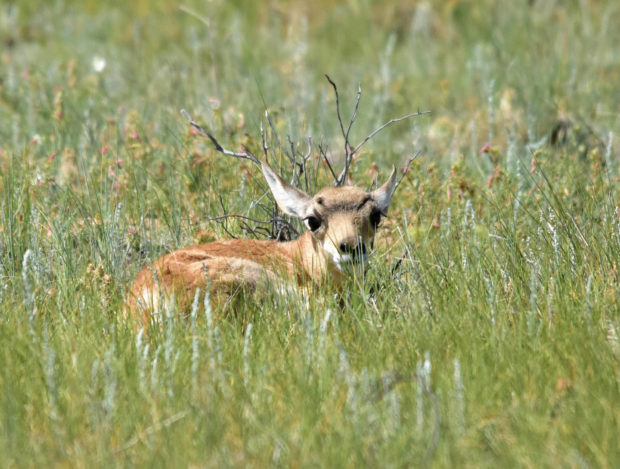We have much more to do and your continued support is needed now more than ever.
Noncompetitive Leasing is Bad for Wildlife, Outdoor Recreation, and Taxpayers

Over the past three-and-a-half years, the Trump administration has prioritized oil and gas development over all other uses of America’s public lands. Anglers, hikers, bird watchers, and sportsmen have widely opposed this lopsided approach, recognizing that most of these leases threaten wildlife such as elk, pronghorn, mule deer, and cutthroat trout. The leases also threaten opportunities for outdoor recreation.
But perhaps the biggest group that should be outraged by the administration’s “energy dominance agenda” is the American taxpayer. That’s because nearly 80% of the acres that have been offered for lease since January 2017, failed to sell at auction. Many of those then became available for noncompetitive leasing and were then sold for pennies on the dollar to energy speculators, who pad their bottom lines with increased acres under lease. Typically, the land is leased for a mere $1.50 an acre, about the cost of a drip coffee.
The practice is called “noncompetitive leasing” and it rarely generates money for taxpayers – just 3 percent of noncompetitive leases issued between 1996 and 2003 went into production – which defeats entirely the revenue-generating purpose of leasing publicly-owned land.

Between January 2017 and May 2020, the administration issued 653 noncompetitive leases covering over 841,000 acres of public lands. Not one of those leases has produced oil or gas, based on the Bureau of Land Management’s own data. At a time when budgets are lean and increasingly stressed by the COVID-19 pandemic, we simply cannot keep wasting taxpayer dollars on noncompetitive leases that, when administrative costs are factored in, likely generate negative revenues. Congress should end the practice of noncompetitive leasing altogether.
Outdoor recreationists have been so vocal in their opposition to noncompetitive leasing because the practice ties up public lands so they can’t be actively managed for other purposes. Noncompetitive leasing is a vestige of a by-gone era, predating multiple-use management, and the growing importance of public lands for outdoor recreation and wildlife conservation. When the Bureau of Land Management has to spend its time processing and monitoring thousands of noncompetitive leases, it has less time and resources to do clean water monitoring, wildlife habitat improvements, and routine maintenance of trails, fishing access sites, boat ramps. In short, the very real needs of wildlife and outdoor recreationists are ignored while the agency deals with paperwork generated by oil speculators.

Worse, when the land is leased for oil and gas development, the company controls its uses. The land is locked up into management for oil and gas development rather than for wildlife habitat or recreation. This hampers efforts to restore wildlife corridors for migrating pronghorns, elk, and mule deer.
Fortunately, there is momentum in the U.S. Senate to reform this outdated, wasteful practice. Senator Jon Tester’s “Leasing Market Efficiency Act” is a common-sense bill that will create a more streamlined, efficient leasing system. It will require that all Bureau of Land Management oil and gas leases be issued through a fair, competitive process. It will increase transparency and cut down on waste. Most importantly, it will ensure that the agency can follow its mandate to manage public lands for multiple uses, including conservation and recreation.
It’s time for Congress to end noncompetitive leasing once and for all, to make sure our priceless public lands will be managed and conserved for future generations to enjoy.





















